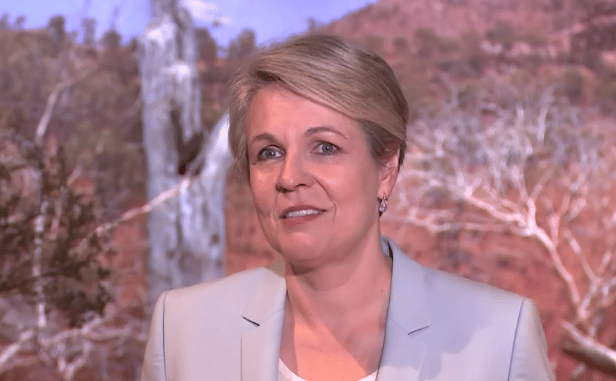Environment Minister Tanya Plibersek has announced sweeping changes to Australia’s environmental laws, including the establishment of a new environmental protection agency and new national environmental standards.
The new independent environmental protection agency will have greater oversight on development proposals and emission standards and will have the power to enforce laws that protect plants and animals.
The sweeping changes to environmental laws are a response to a review of the Environmental Protection and Biodiversity Act provided to the previous Morrison government in January 2021.
The Morrison government never formally responded to the review, which said significant reform was needed to stop the extinction of Australia’s threatened plants, animals and ecosystems.
Plibersek announced the changes in Brisbane on Thursday, saying it was designed to ensure better protection of Australia’s threatened ecosystems. The government has also proposed changes to conservation planning and new rules around developments, as well as new standalone First Nations cultural heritage protection laws.
There will also be reform around environmental offset arrangements to ensure they deliver gains for the environment, and a new Data Division to improve the availability, access and quality of environmental information to underpin these reforms.
The announcements come after Plibersek previously pledged to reserve 30 per cent of the country’s land and oceans to conservation by 2030, to improve and protect biodiversity, and a “no more extinctions” goal.
WWF-Australia’s Chief Conservation Officer, Rachel Lowry, said the government’s response to the review was a strong starting point.
“Today’s response outlines some significant and long overdue reforms to tackle Australia’s extinction crisis, especially in light of the scale of loss and corruption experienced over the past decade,” said Lowry.
“The reform package has the potential to be a game-changer for the protection of wildlife and wild places if the government secures expert input from the environmental sector when landing the next phase of detail.
“Lack of enforcement is the single greatest failing of the EPBC Act, so we’re pleased to see an EPA at the heart of the government’s plan.
“It’s vital that this agency has the resources and independence to audit major projects and ensure every Australian, business and industry is doing the right thing for nature.”
Lowry also said there were also some concerning gaps and a lack of urgency from the government, including no mention of a climate trigger that would force the government to assess the impact of emissions from future coal and gas projects on climate change. The Greens have been strong proponents of a need for a climate trigger in new environmental laws.
“The plan has no mention of a climate trigger and fails to properly consider the impact of climate change on nature,” Lowry said. “On the government’s own timetable, the reform package will be introduced into the parliament before the end of 2023, which means it is unlikely to be implemented until 2024.
“Our wildlife and wild places cannot afford to wait this long for action.”
Greens Spokesperson for the Environment Senator Sarah Hanson-Young said the changes were a move in the right direction, but more urgency was needed.
“There is nothing in this package to save our iconic koala. There is nothing in this package to protect our native forests. There is no climate trigger, indeed there is very little to address the impact of the climate crisis on the environment at all,” she said. “It remains unclear how the Government will deliver on its zero new extinctions pledge while land clearing is allowed to continue.”


